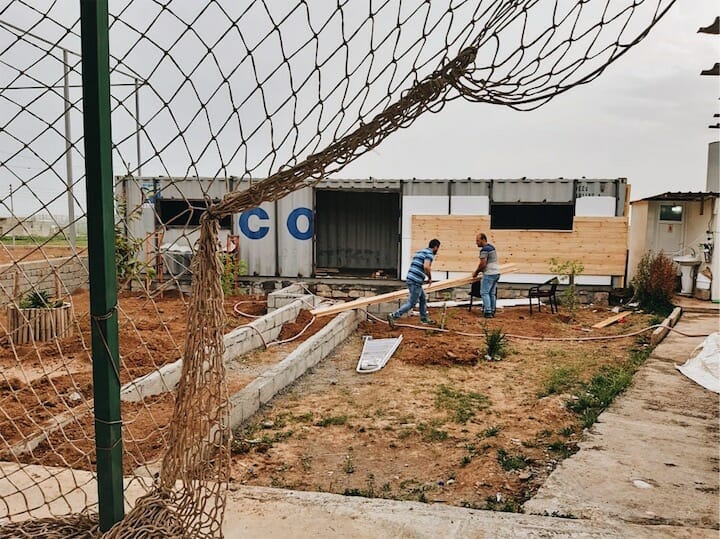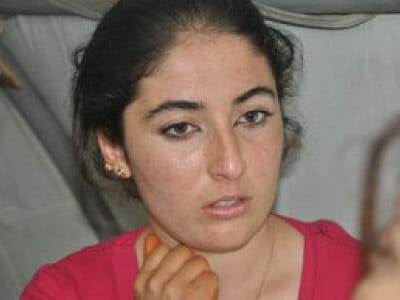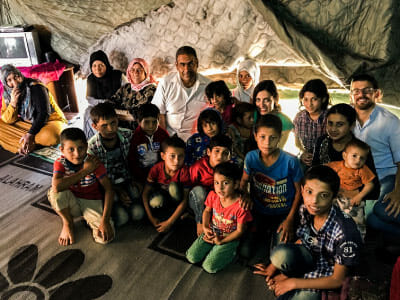When I first heard about what was happening in Sigy Refugee Camp, there were two main reactions that rose to the surface for me. One was complete excitement in seeing such an incredible change take place. The other was a form of disbelief. I simply couldn’t believe what was happening less than 30 km (18 miles) from Dohuk.
For those that are a bit unfamiliar with where exactly Dohuk is, it is in Northern Iraq, a part of Iraqi Kurdistan. There is roughly a 80 km (50 miles) distance between Dohuk and Mosul. Mosul has been infamously known as the Islamic State’s capital in Iraq. Yazidis were fleeing the area, trekking through Mount Sinjar, to find safety. Cities around Mount Sinjar were attacked by ISIS as they targeted the Yazidi ethnic minority. In Mosul, the predominant targets were Iraqi Christians. Being populated mainly by Kurds and Assyrians, Dohuk has become a temporary home to many displaced people including now around 1 million Yazidi, Christian, and other minority refugees. Sigy Refugee Camp has become one of these refugee camps just outside of Dohuk.
This refugee camp consists of 300 Christian families and 1,000 Yazidi families. Let that sink in. These are not 1,300 individuals, but 1,300 families. When we speak of displaced people, we are referring to Yazidis fleeing Mount Sinjar and nearby cities, along with Iraqi Christians who have also been forced to leave their homes in Mosul. It has been estimated by that there are around 2,000 children coming through Sigy Refugee Camp each year. But here is where it really gets crazy, and really exciting.
ROS sends containers to refugee camps on a regular basis to the Middle East, particularly in Northern Iraq. These are 40-foot containers that are filled with medical supplies, blankets, clothing, and toys. Sigy Refugee Camp had received one of these from ROS about 2 years ago. But instead of letting that container go to waste in the high desert of Iraq, letting it only be used for storage, we found a better us for it. Members of the camp refurbished the container into a clinic through the help and funding of Roads of Success. We brought in a construction crew, locals willing to work and serve their neighbor, to remodel the containers and start preparing for the next stages of development.
Trucks loaded with 2x4s, varnish, construction tools, ladders, paneling, plants, and wheelbarrows rolled into the camp to start the daunting process of building what both displaced Yazidis, refugees, and locals alike dreamed of: a gym center for the youth and families. What started with just a 40 ft used container turned clinic soon became so much more.
A soccer field soon entered the scene. Being referred to by Sigy Refugee Camp as the gym, this field is the focal point of this center. The refugee camp describes the goal of the gym to be for the youth to become more physically active and healthy, with the hope that this will decrease depression and suicide case in that age group. Different activities that are being offered at the gym include volleyball, soccer, handball, lacrosse, ultimate frisbee, and badminton, along with other games and running sports.
The simple truth is sports, especially soccer in the Middle East, is more than just fun and games between kids. It is hope in the middle of a literal dry desert. It’s a step into change and peace that brings healing. If a generation of displaced and refugee children have the opportunity to continually hear and see that they are worth time, energy, love, and being seen consistently, could that not change the world? Or at least the tiniest piece of it? I have to believe the answer to be a resounding yes.
Yet there is still more to the story. Classrooms are being built for children to be educated in. Somehow, in the midst of all the chaos and disarray, there is not only the desire for a better future, but the firm belief that it is real and tangible. After being forced to flee their homes in the waking threat of ISIS, then having to cram into a refugee camps with thousands of other displaced Yazidi families, the Iraqis here are not willing to let their adversity win. Hope is still real and very close for them, enough if it just starts with a soccer ball. There is not simply the hope for survival, but the dreams and plans to live a life of thriving, even in a desert.
The best way for this hope to be represented is through the community garden being built. When Yvette Isaac, Founder and President of ROS, first told me about what was going on at Sigy Refugee Camp, this is what excited me the most about the project. Looking through the photos, the green plants in the midst of the dry dirt stood out to me more than anything. If this was not a perfect visual of a spring in the desert, I didn’t know what was. The community garden will be located right in front of the clinic. Our hope is that all who come and go through Sigy Refugee Camp will not only find physical healing and recovery, but mental and emotional healing as well. And we believe that that can start with a soccer field and a garden.
However, the journey is far from over for both the refugees and the projects here at Sigy Refugee Camp. Currently the Methodist Church and Sigy Refugee Camp are only able to afford for a local doctor to come in once a week to the clinic. The hope is to have a doctor each day of the week. Along with the costs of running a clinic, there is also the costs of the gym itself. The gym costs totals out to about $15,000. This includes items like the fencing, goals and balls, and 3 shift supervisors. A significant necessity also included in the funds mentioned goes towards electricity and a cooler so the crew will be able to work at night as it is very hot to work during the day. Every bit helps, even if it’s donating $40 towards ultimate frisbee. We are so grateful for all who have donated and partnered with us at Roads of Success. But the hard work is far from over.









